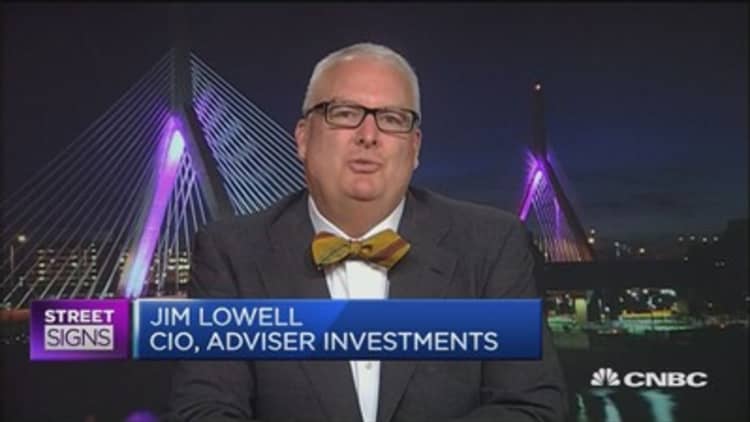This is why Internet companies aren't going public.
Sure, private money is plentiful. Hedge funds, mutual funds and sovereign wealth funds are throwing around capital at monster valuations. Early employees have new liquidity options. In short, the prevailing story has become that there's no compelling reason to go public.
Read MoreTech IPOs not keeping up with funding surge
But the truth is that the IPO is dangerous, and Twitter is evidence.
Twitter is a phenomenon. In less than a decade, it's gone from a status update site that was more of a joke than a business, to a $23 billion company that's fundamentally changed how we consume information.
For outgoing CEO Dick Costolo, however, the reality is that $23 billion is a much lower number than $40 billion, the level at which Twitter was valued in late 2013.
Even though Costolo has helped Twitter become the sixth most valuable U.S. consumer Internet company, its growth and profitability challenges are reflected in an ugly downward stock slope that's updated in real time.
Sober in public, drunk in private
Tech investors accustomed to the hefty margins generated by Apple, Google and Microsoft don't know quite what to make of Twitter and its $600 million of losses in the past four quarters.
"What investors generally failed to understand about the company—and perhaps what management failed to fully communicate since the time of its IPO—was that Twitter was and remains a venture stage enterprise," wrote Brian Wieser, an analyst at Pivotal Research Group, in a report on Thursday. "It just happens to be traded publicly."
Looking at the most valuable private companies, none of them are talking much about an IPO. Uber, Airbnb and Dropbox are all valued like public companies, but none are ready for the scrutiny that comes with quarterly earnings and showing predictable growth, to say nothing of the various regulatory concerns.
Then, of course, there's Pinterest and Snapchat, which are just starting to generate revenue.
Read MorePinterest adds 'buy' button
Many of the high-profile Internet companies to go public recently are getting hammered. LendingClub is down 31 percent this year, Zulily has dropped 42 percent and Coupons.com has fallen 27 percent.
It's all feeding into an emerging view that many of the billion-dollar private companies face a reality check, if not a day of reckoning, when they go public. And venture investors need those IPOs to realize their paper gains.
As John Elton of venture firm Greycroft Partners told CNBC last month, "There's public market sobriety and private market inebriation." (Tweet This)

None of Twitter's struggles were on display Thursday as the company announced Costolo's departure, and the return to CEO, on an interim basis, of co-founder Jack Dorsey. Twitter said that Costolo will remain on the board, and Dorsey indicated that things were good.
"We're focused on our execution, we're focused on getting product out there, we're focused on getting services, and we have the right team in place to do that," Dorsey told CNBC on Friday. "And I do feel that we can accelerate a bunch of that so people get to see it faster."
The change comes just two weeks after Costolo told an audience at the Code Conference that he and the board were "totally in sync." And just a week ago, Twitter mega-investor Chris Sacca published "What Twitter can be," an 8,500 word recommendation letter.
Read MoreTwitter CEO and board are `totally in sync'
According to Sacca, one of Twitter's struggles is that "Wall Street's confidence in the management team has diminished."
It's up to Dorsey and whoever the new leader is to get Twitter's costs under control. Meanwhile, the company needs to reaccelerate user growth and grab a greater share of the digital advertising market that's increasingly going to Google and Facebook.
"We expect user growth to remain weak in the near term and think addressing this issue will be job number 1 for the company's future CEO," wrote Arvind Bhatia, an analyst at Sterne Agee CRT, in a report after the announcement.


